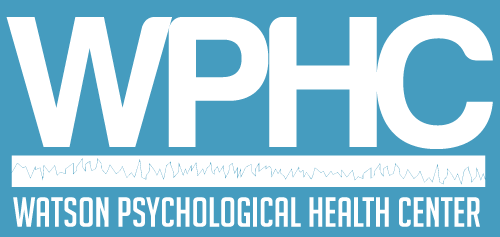Anxiety
Anxiety is a normal and often healthy emotion. However, when a person regularly feels disproportionate levels of anxiety, it can become debilitating and interfere with their daily life. Anxiety disorders form a category of mental health diagnoses of excessive nervousness, fear, apprehension, and worry. These disorders alter how a person processes emotions and behaves, also causing physical symptoms.
There are several types of anxiety disorders, including generalized anxiety disorder, social anxiety disorder, specific phobias, and separation anxiety disorder.
Generalized anxiety disorder is characterized by excessive, unrealistic worry and tension, even if there is little or nothing to provoke it.
Social anxiety disorder is a fear of being judged or scrutinized by others in social situations.
Specific phobias are an irrational fear of a specific object or situation, such as a fear of heights or flying. Separation anxiety disorder is excessive worry about being away from home or loved ones.
Anxiety disorders can be caused by a variety of factors, including genetics, brain chemistry, and life events. It is also common for people with anxiety disorders to have other co-occurring mental health disorders, such as depression or substance abuse.
Treatment for anxiety disorders often involves a combination of therapy and medication. Cognitive-behavioral therapy is a common form of therapy for anxiety disorders and involves identifying and changing negative thought patterns and behaviors. Medications such as selective serotonin reuptake inhibitors (SSRIs), serotonin-norepinephrine reuptake inhibitors (SNRIs), and benzodiazepines may help for short periods of time in reducing anxiety symptoms.
It is important for individuals with anxiety disorders to practice self-care and engage in activities that help reduce stress and promote relaxation, such as exercise, yoga, and meditation. It is also essential for individuals to educate themselves about their disorder and treatment options and to communicate openly with their healthcare provider. Seeking support from friends, family, and support groups can also be beneficial in managing anxiety.
Meditation is a practice in which an individual uses a technique – such as mindfulness, or focusing the mind on a particular object, thought, or activity – to train attention and awareness, and achieve a mentally clear and emotionally calm and stable state. Meditation has been practiced for thousands of years and has a variety of benefits for both the mind and body
There are many different types of meditation, including mindfulness meditation, spiritual meditation, and focused attention meditation. Mindfulness meditation involves focusing on the present moment and acknowledging and accepting one's thoughts and feelings without judgment. Spiritual meditation involves seeking a higher spiritual connection and can be practiced through prayer or repetition of a mantra. Focused attention meditation involves focusing on a specific object or task, such as the breath or a candle flame.
Meditation has been shown to have a variety of benefits, including reducing stress and anxiety, improving sleep, and increasing feelings of well-being. It has also been shown to improve focus, concentration, and memory. In addition to the mental benefits, meditation has been shown to have physical benefits as well, such as lowering blood pressure and reducing chronic pain.
Meditation can be practiced by anyone and does not require any special equipment. It can be done in a seated position, lying down, or even while walking or doing other activities. It is recommended to start with short meditation sessions and gradually increase the length as one becomes more comfortable with the practice. It is important to find a quiet, comfortable space and to choose a time when one will not be disturbed. It can be helpful to set a specific time each day to practice meditation to establish a consistent routine.
It is essential to remember that it is possible to successfully manage and treat anxiety disorders. With proper treatment and self-care, it is possible to reduce symptoms and improve the quality of life.
